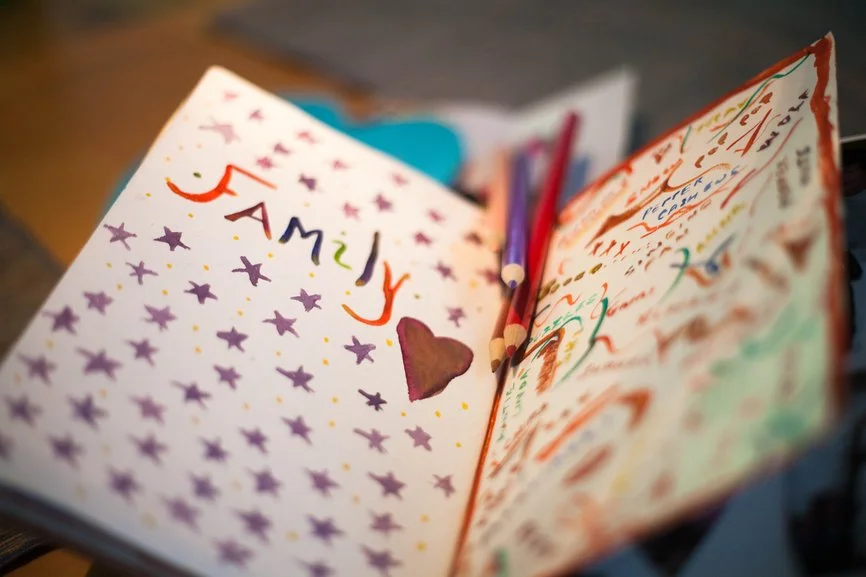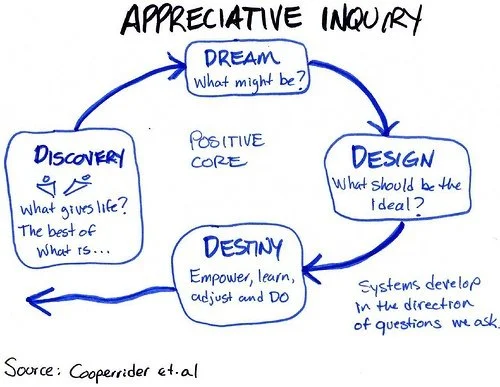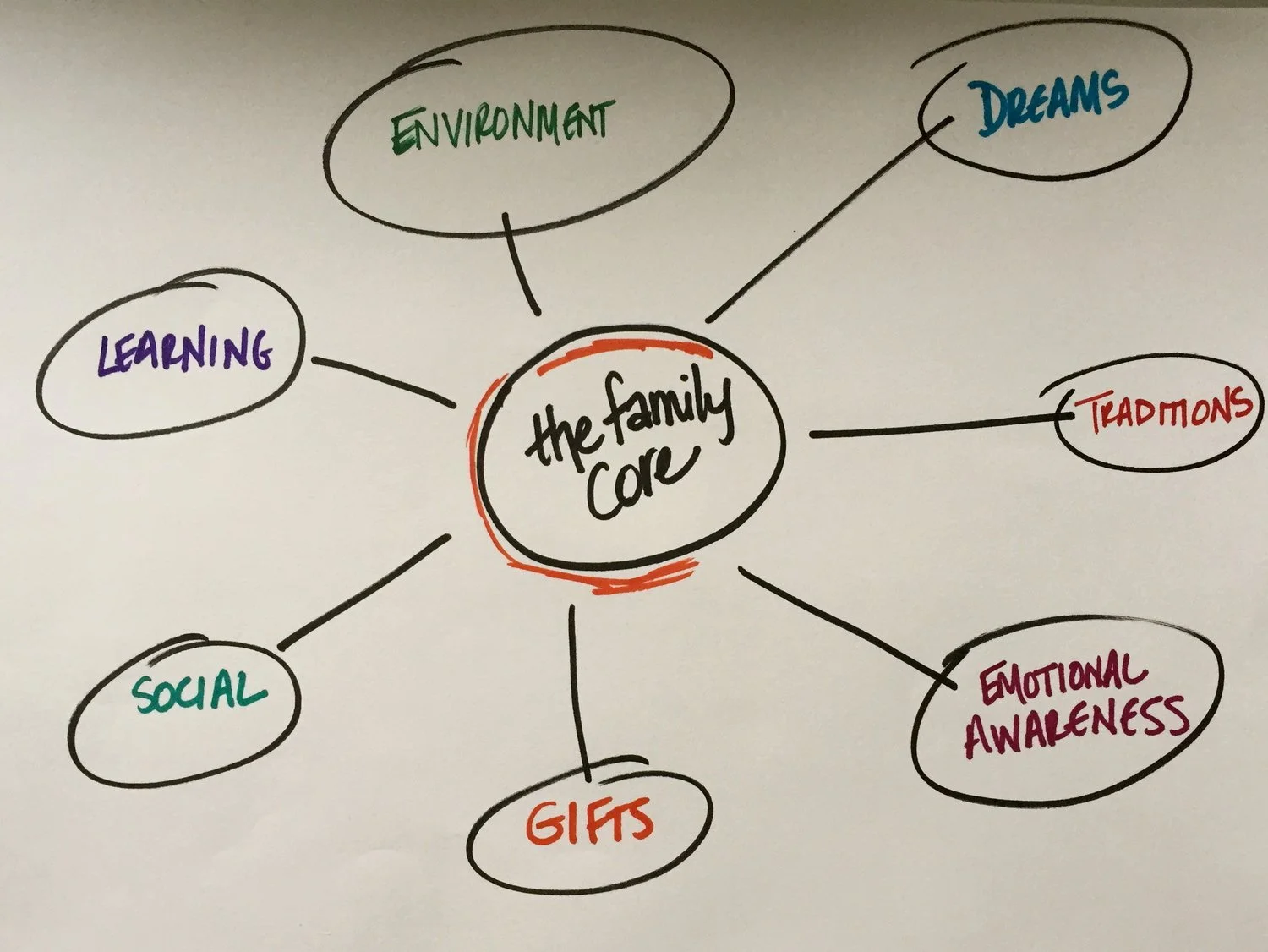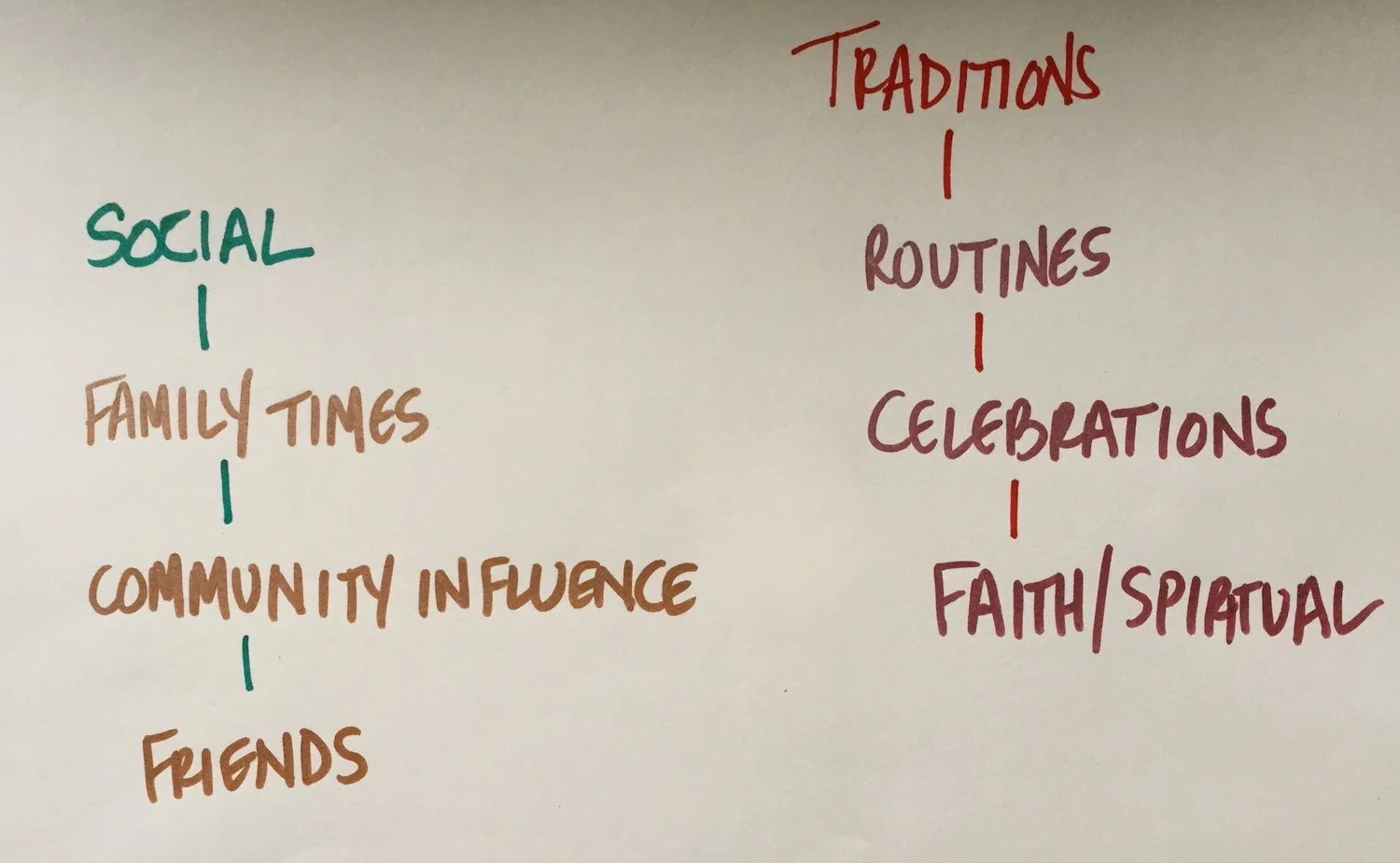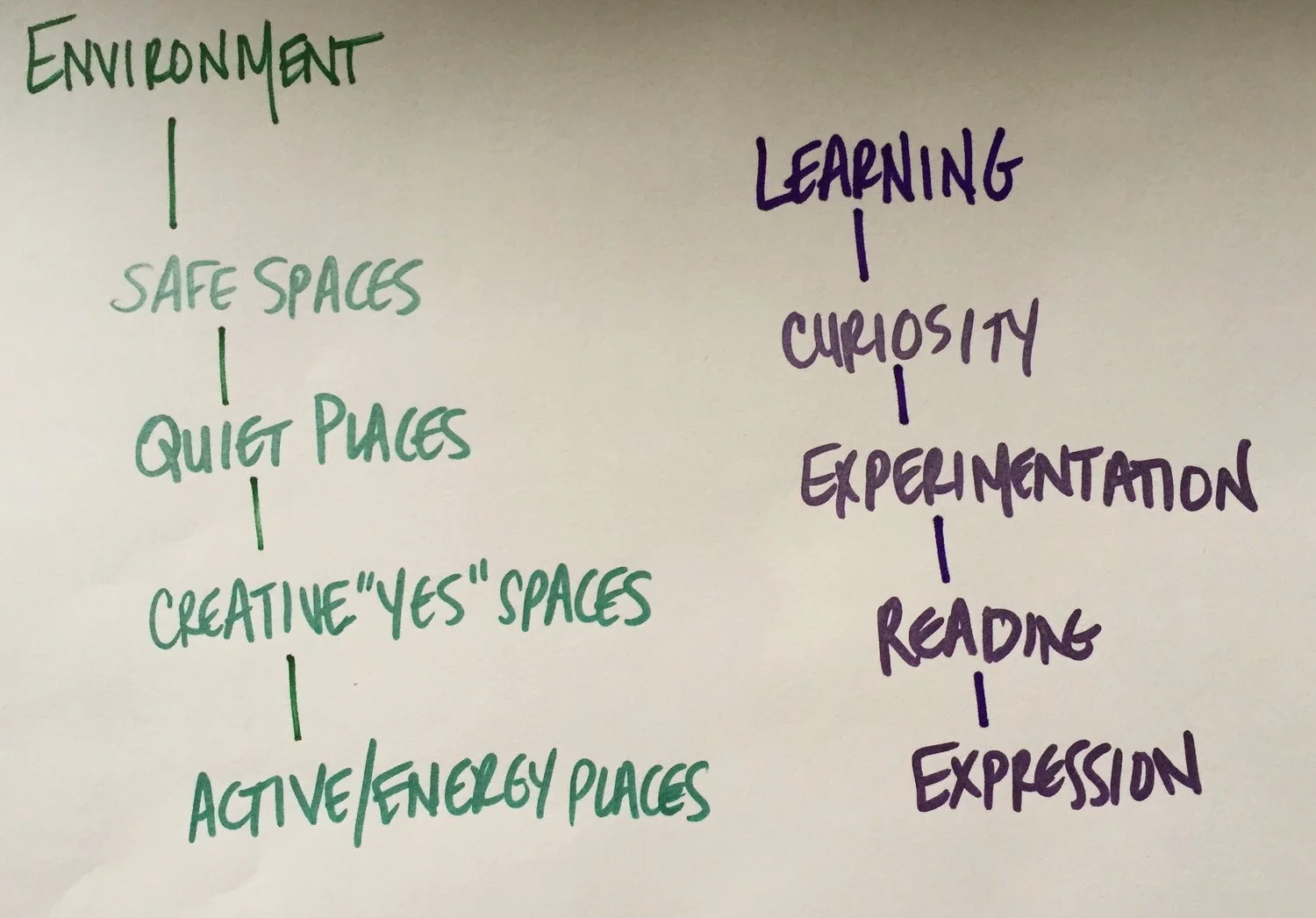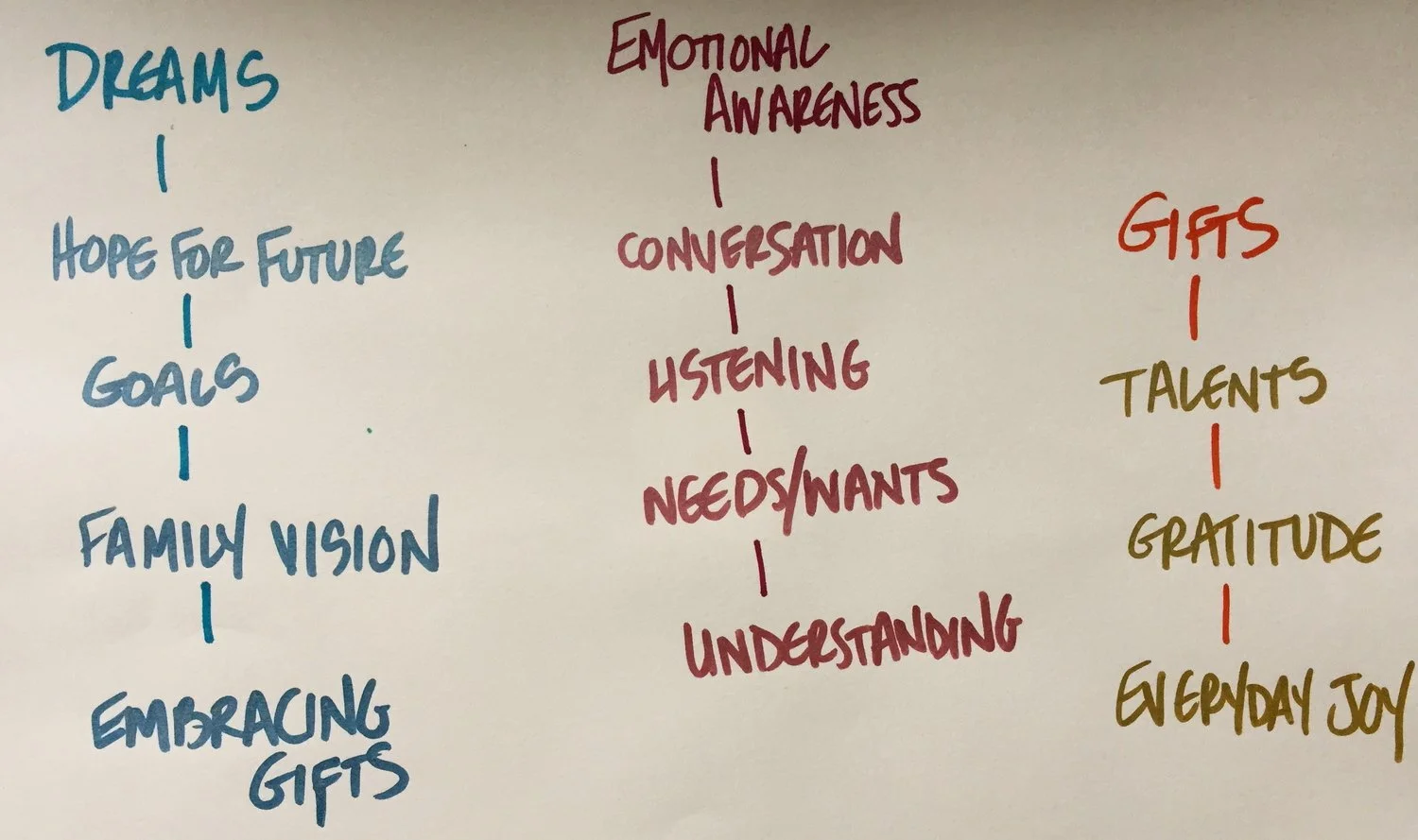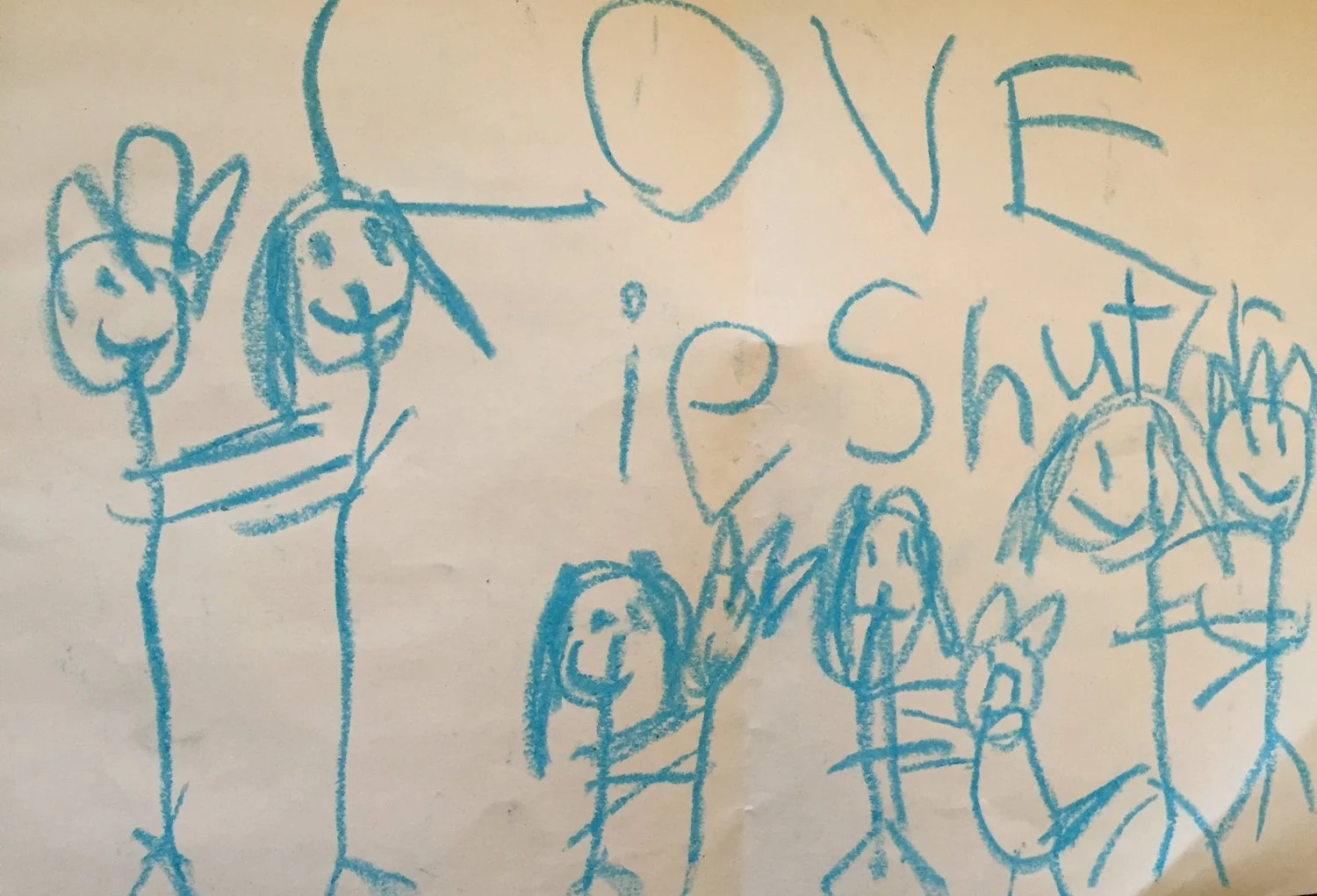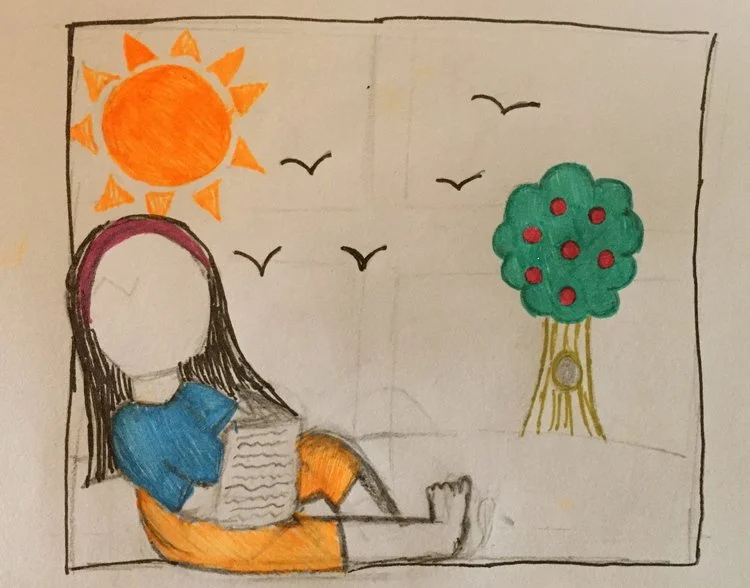Designing a Thriving Family: The Family Core
FAMILY IS A POWERFUL FORCE, CAPABLE OF AMAZING THINGS TOGETHER.
Just like any group, community, company, or church, the family has an incredible energy that is ready to be unleashed for excellence. Often, though, we are dragged into negativity and our own defeating thoughts, most likely reinforced by severe losses and tough experiences, or even the difficulty of simply keeping up with daily demands.
Do you know a family that has experienced the following?
Death of a parent
Loss of a child
Financial gain and loss
Wondering where the next meal may come
Marital strife
Arguing
Silent treatment
Fear of success
Fear of failure
Fear of being known
Sickness, illness, suffering
Dying friendships
Isolation and loneliness
Chances are, you do, or you have experienced them yourself. And you probably know other families who have experienced different things, or have had even more than their fair share of hardships in their lifetime.
Our family has known hardships and setbacks, too.
In order to truly resonate as a family and get into transformational space, we can be radical. I believe in transformation and discovering what brings out the best in a family. I am grateful to witness it daily in my own life. When we are in difficult times and places, it is hard to see past those places. We need ways of understanding how to dwell fully in the present and dream of possibility for the future. And we need a framework for our family to guide us through the best of times and worst of times to maintain our resilience.
When my husband and I were discussing this post, we both agreed we loved the term "Family Revolution." That is what we believe in . . . we believe in the possibility of thriving and whole families, and that transformation is within our reach. So, we decided to experiment with looking at all that we appreciate about our family, identifying the core elements that will carry us through all of life's transitions
Appreciative Inquiry will be our guide in learning to build the family’s positive core. This is not a guarantee for a problem-proof family, but it is a powerful tool for unleashing “what gives life” and understanding the freedom to dwell in a positive family state.
Many of us think that our ideal is a far off and ever unrealized pleasure that we are not entitled to truly receive. So, first we have to open our heart and mind to possibility. No matter what we have experienced, there are things to draw from and appreciate that are at the core of you (and your family) today that will carry you into the future you desire.
First, some basic definitions:
Appreciate: To value, recognize the best in people or the world around us.
Inquire: to explore and discover, ask questions, be open to seeing new potentials and possibilities.
Then, we have to understand important elements that Appreciative Inquiry (AI), brings to the table.
1. AI creates a context in which people are Free to Be Known in Relationship.
As unique individuals and as part of a web of relationships, not just on their role in the family.
2. AI makes a space in which people are Free to be Heard.
Actively listening, curiosity and openness to know each other with compassion. A true invitation for family members to be heard and offer ideas.
3. AI opens the opportunity for people to be Free to Dream in Community.
Creating a safe place for sharing dreams with one another.
4. AI establishes an environment where people are Free to Choose to Contribute.
Providing a place where individuals can learn their deepest calling. Offering freedom to choose do projects. In a family setting with younger kids, it may not always be easy, but there need to be places where each family member is free to make a choice on stretching out of their comfort zone in order to learn creativity, determination, dedication and commitment.
5. AI provides the context for people to be Free to Act with Support.
Positive interdependence. Recognition that you care about the contributions of each family member. Acting with support makes family members feel safe to experiment, innovate, and learn. At each stage of progression and development with children, the approach to this concept may have to change, too.
6. AI opens the way for people to be Free to be Positive.
"The effect of AI is so strong and powerful that it can even transform deficit discourse and negative thinking." This process gives your family permission to feel positive and be proud rather than being buried in complaining, criticism, and negativity.
(all above referenced from the Appreciative Inquiry Handbook, For Leaders of Change, 2nd Edition)
And now the 4-D Cycle of AI:
Then, we break it down to understand Discovery, which is where we will focus to explore the family core.
“It is through the sharing of ideals that social bonding occurs.”—AI Handbook
The discovery phase is where we identify what gives life and appreciate the best of what is through the sharing of stories of exceptional accomplishments, peak times, and core life-giving factors of an organization (so, instead of an organization, we will use our family).
To begin to discover the positive core of my own family, I started to look at themes.
From those themes, I then looked at different topics:
Then, I chose the following questions:
What is it that you enjoy the most about being a part of our family?
What are some of your favorite moments of our family together?
The questions are grounded in appreciation and inquiring about the “best of what is.” So, while we certainly did have tough times in our family, we are able to draw out the positives through all our experiences.
These may even be topics that come naturally for families to share when they are gathered around the table. In my case, I wanted to select questions that I knew all my kids could respond to, regardless of their ages. You may not have children yet or your children may be too young to express these things, so you may have to identify the best of what is with only your spouse or soon-to-be spouse in order to understand your vision for the future. You may be on your own, and want to work with your extended family. Maybe you have had a torn apart family, or a family that is disengaged, disconnected or dysfunctional. Maybe you are a family counselor reading this article, and would like a different method or approach to restoring families. Whatever the case may be, this method will draw from the core life-giving factors--those same factors that gave you hope for your family in the first place.
When asking the questions, one key is to listen with openness, engaged in really wanting to hear the answers. If you want to take it one step further, take notes of the responses so you can later remember some of the specific things that they shared.
“We love each other” by AA
OUR FAMILY AI
What is that you enjoy the most about being a part of our family?
We like to cook and take turns cooking
We love each other (I know, pretty general, but important!)
We try to do things together
We play outside together (baseball, football)
We work through things and try to resolve conflict
We are resilient
We care about people
We all are musical
We like to read
(Illustrations by AA & R)
Illustration by R
Seeing the unique gifts of each of our kids, and seeing the gifts that I have, and how those are connected. I embrace my gift of music more as a continuum of the next generation . . . it is not a gift unless it is truly given away. So, being able to give that gift to my kids . . . music, time, anything . . . makes me appreciate and realize how we share these strengths with each other over time, where our kids feel safe to express those gifts, regardless if it will ever be shared with the world. This creates meaning in our relationships.
Conversation. We will talk about hard things, good things, funny things. We like to talk around the table, sometimes using a question of the day. We will use creative questions like, "If you could have your own planet, what would be on your planet and what would you name it?" to questions like, "What was the hardest thing you had to do today?" or "What was your favorite part of the day?"
What are some of your favorite moments of our family together?
When we went to the beach and we found a giant fish and a tiny fish, and we all tried going in the water. I was doing back-tucks on the beach. Gio and I went out and started going under water—having a hunt to find more fish.
Going to Pennsylvania to the cabin. It was fun to stay up late and play pool and watch movies together. And we played in the creek and went hiking.
When we all went to the zoo. We saw a lion and I felt happy!
Doing music together.
Going to Chicago with all our family. It was the first time I rode a 4-wheeler with dad. And we were doing fun activities, and got to go swimming, and have fun together.
I love playing football in the front yard. It is so simple, but it is another way that I bring the full experience of my own childhood, and a piece of my father to my kids. My dad and his family played football with us, and that was a positive for me. So, I enjoy doing that with my kids. We laugh, we have fun . . . I usually lose! But, I love that it teaches us to win and lose right here in our own front yard.
The promotions and graduations . . . all of ours. All the way from kindergarten to college. They are great achievements, but it is showing me in a small, but not subtle way, that our kids will have what it takes to transition through life. These moments are not without struggles. Each of our kids has a great “resolve” within themselves to keep trying.
Now, from these responses, we can pick up some key elements and themes. It is like a mystery novel, where the clues are woven into the story leading to a brilliant--sometimes expected and sometimes unexpected--ending.
So, taking the themes, the topics and the questions, we apply our stories and responses.
Learning
We enjoy and value learning: you will often find us with a book in our hands, or reading on our tablets. We are curious, we experiment (we like to cook dinner, take turns being a chef, or making meals, taking adventures), and embrace creative/artistic expression (art/music is a norm in our family life). We celebrate accomplishments and achievements.
Social
We care about people. Even in such a simple statement, our family knows that we care because we are part of a community and we all volunteer in different capacities as we are able, from small to large activities, we try to make it a point to be a part of community in some way. We also embrace conversation . . . it is a part of life in our home.
Environment
We create safe spaces: quiet places, creative “yes” spaces, and active/energy places. With these particular questions, the emerging theme was how we create active/energy places (hiking, playing outside, going to the zoo, going to the beach, going on trips). We definitely have creative "yes" places--meaning, we can experiment with cooking, we do art, we make music. It also ties back to the learning component . . . we are willing to try new things.
Traditions
We have a routine of having dinner around the table together. Our family knows how important that is, and it is something that we cherish. We also play together. While some may not think it is a tradition, my dad's family played football, so we try to play football with our kids. Celebrations are also traditions, and how you celebrate is your own family tradition.
Gifts
We embrace the gifts of each individual in the home, which ties to their ability to be free to contribute. Each one of them offers something to the family, and if we can honor that gift, we will do our best to honor it. My husband and I also try to pass along our gifts and talents to our family, through music, people skills, math . . . whatever it is that allows us to contribute to their needs. We also do our best to experience gratitude for the present and what we have, bringing every day joy through all our adventures, big and small.
Emotional Awareness
As said before, we believe in conversation, listening, understanding needs/wants, and practice at understanding instead of judging. We work through things and try to resolve conflict. We know there will be bad days, which also contribute to learning experiences. Sometimes family life can just be really rough. We learn to forgive, fight fair, to change our approaches, work on patience.
Dreams
We love each other, do things together, we celebrate, we talk, we learn to win and lose, fail and thrive. This allows our family a safe space to dream: have goals, recognize individual contributions, bring hope to the future.
Questions can be crafted around any of the themes and topic choices to draw out the “best of what is” in your family. This is how to start to build the family core. And as you discover and identify this core, you will be able to develop a vision for your family’s future. It will be based on individual and collective strengths and rooted in shared experiences. It will be what you come back to during the times of stress and suffering to maintain resilience.
The great thing about these concepts is that no matter where you are in your family right now, you can start to apply change through changing the dialogue. You may not walk through the whole process above--you may simply just have a meal together and ask questions about your family's best moments, listening intently to what each person shares. It does not have to be formal. It can just be a simple change in approach.
". . . you suddenly realize the essence of this wonderful idea of appreciative inquiry—that we can actually be in the moment we are in, working toward the change we want to realize, and that this be-ing with each other is the change happening, as we engage. We do not have to plan for it, measure it, wait for a date to have it, or announce that it is here; positive change is what life—living—can be all about. It is not a Cartesian concept to be objectified or even measured as much as it is the quality of experience—of being connected to others in shared hopes, activities, and exchanges that help each of us to flourish in the moment.” --Ronald Fry
REFERENCES
Cooperrider, D. L., Whitney, D., & Stavros, J. M. (2008). Appreciative Inquiry Handbook, For Leaders of Change (2nd Edition ed.). Brunswick, OH: Crown Custom Publishing, Inc.

